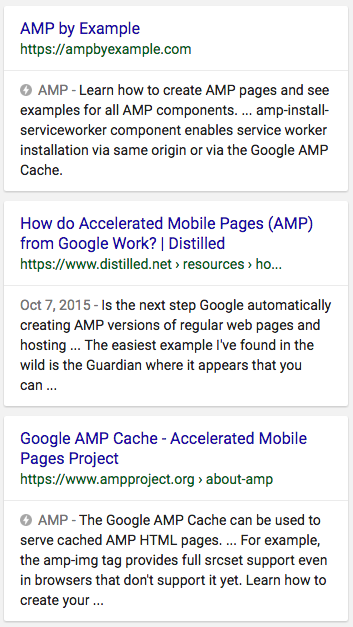Topics:
Marketing StrategySubscribe now and get the latest podcast releases delivered straight to your inbox.
Yes, it’s already that time of year…
Then again, it’s never too early to begin revisiting your mobile website's SEO to better prepare for your ambitious traffic goals or increased conversion rate you’re preparing to set for the new year.
If you still haven’t jumped on the mobile SEO optimization train for your website, then you’re losing a significant amount of traffic on your website. As it is, Google has found that mobile queries have already surpassed their desktop counterparts, and that won’t be reverting.Quick fixes aren’t going to cut it, optimizing your site’s SEO is a long-term never ending process that will require you to better understand what your potential buyers are searching for, remove unnecessary site bloat, and begin preparing for a couple new updates Google been rolling out.
But rather than thinking of these changes from desktop to mobile, it’s now going to be necessary to optimize for mobile first and work your way backward. This way, you’ve properly taken mobile into account first and will have an easier time transitioning everything for desktop.
In this article, I’ll touch on the big areas to improve on your mobile site and how to probably optimize it so you're reaching as many people as you can.
Going Mobile for Local SEO
With people constantly on the go, users are spending less time using their desktop devices to fulfill their needs online, especially when it comes to local searches. In fact, a study by Search Engine Land found that 56 percent of ‘on the go’ searches have local intent.
But despite the increase of searches on the go, why is local important?
Most mobile users are searching for information within close proximity to them. This could be either business work hours, locations, types of business, etc. Another study by Search engine watch found that 50% of these local searches resulted in a store visit.
This means that optimizing for your local SEO in critical so people are easily able to find basic information about your business faster than that of a competitor. Otherwise, people may have to search your website before finding what they are looking for, and they simply don’t have time for that.
There are a couple tactics you can use to optimize your website and SEO to make it easier for users to find you.
Google Schema
Google’s Schema markup, a snippet of code containing important and informative information about your business, is key in allowing search engines to better display typically searched data for your users.
This markup tells the search engine not only what the content means, but how the information should be interpreted. For example, the author of this article is listed as ‘Christine Austin’. On its own, the search engine doesn’t exactly know that. By using proper schema markup, we can tell the search engine that this is a blog article with a specific author, bettering the results if someone tries earching ‘Christine Austin’.
On a more local level, LocalBusiness schema can help search engines interpret your businesses geography, rating, or even payment forms accepted. You could use the markup to advertise and event your are running, the same way Lupo’s Heartbreak Hotel did below:

Kissmetrics has a step by step article I recommended checking out teaching you how to get started using Schema and implement it onto your website yourself.
Optimizing Your Mobile Site for Users
It’s critical to be mindful of where constantly searched business information are located throughout your website. For example, making sure your phone number is easily viewable if you rely on customers to call you for inquiries or purchases.
This also goes back to many local SEO basics such as making sure your title tag doesn’t include your name alone, but rather industry and location as well. If your business has multiple locations, create a page that lists them to make visibility of them easier. Verifying that any alt tags are properly filled in and meta descriptions are optimized will also help you rank higher.
Focus on Mobile Optimized Content
It’s important for marketers so consider how their user base chooses to search and consume their content when they are on a mobile device vs desktop. For example, your users on mobile may be more concerned with geographic locations or ratings/testimonials, as opposed to answers to complex questions.
These contrasting behaviors need to be taken into consideration and applied to the way you organize and structure your content. On top of that, buyer behaviors and stage in the buying cycle may differ for mobile users, making their search inquiries vary.
Using Search Engine Watches article as a guide, there are a couple ways agencies can capitalize on mobile search inquiries with their content:
- Updating your current marketing strategy - Make sure mobility has been taken into consideration when optimizing for keywords, keyword research, and conversion measurement. Account for trends in organic search behavior and keep in mind your buyer’s mindset when they are looking you up on a mobile device. Do you think they'd be more likely to purchase your software, or, are they just looking for some articles to read about before heading to sleep?
- Expanding keyword research - Mobile searchers have begun incorporating spoken searches into their habits rather than typing, making the phrases they search similar to that of spoken word rather than short keywords. This means upping the number of keywords you monitor with help discoverability and allow you to identify what content is discovered most often buy your mobile users.
Google Amp is Moving in
If you’re new to the term, Google’s Accelerated Mobile Pages (AMP) is designed to improve mobile user experience across websites by offering stripped down versions of web pages so they load faster. While not a ranking factor, users will see a small lightning bolt with ‘AMP’ within the search results so users recognize that it's enabled on the page. You can see the example below for the first and last results:

But if they aren’t affecting rank factor, why should you care?
This means two important things if enabled. One, your page will be more likely to appear on a carousel on Google’s search results, above other searches, with the recognizable ‘AMP’ symbol accompanied with it. You can see the example below after searching for ‘Lester Holt’:

Second, having AMP identified for your users means they will know prior to visiting your website that page load times won’t be as slow as a competitors may be. This can subconsciously have an effect on searchers to visits your site knowing they are able to retrieve results faster.
So how do you prepare for AMP? We personally suggest starting with your blog, as most of your organic traffic is probably driven to those posts. Giving them the most optimized experiences increases the likelihood that they’ll see your article in the carousel. There's also a higher chance of them converting.
While larger sites have already begun implementing AMP, many small to midsize businesses have yet to jump on the train. This means capitalizing on it early will give you the opportunity to start driving more mobile traffic while beating your competitors too.


Order Your Copy of Marcus Sheridan's New Book — Endless Customers!

